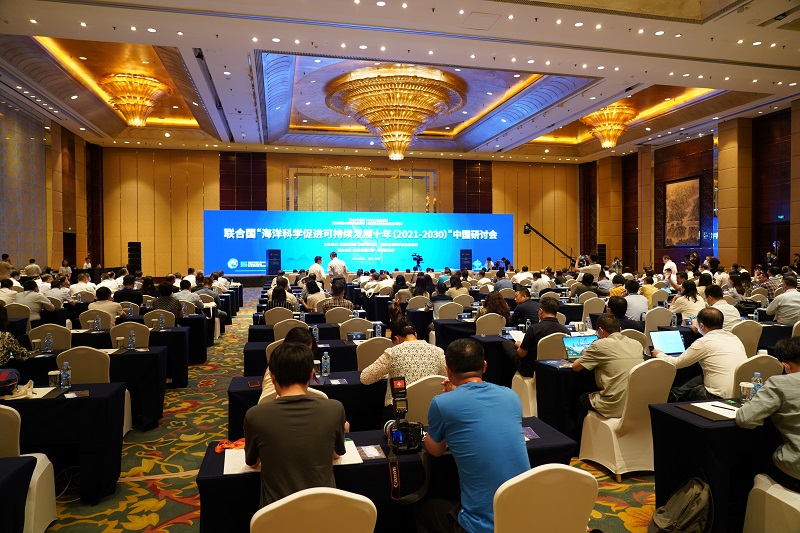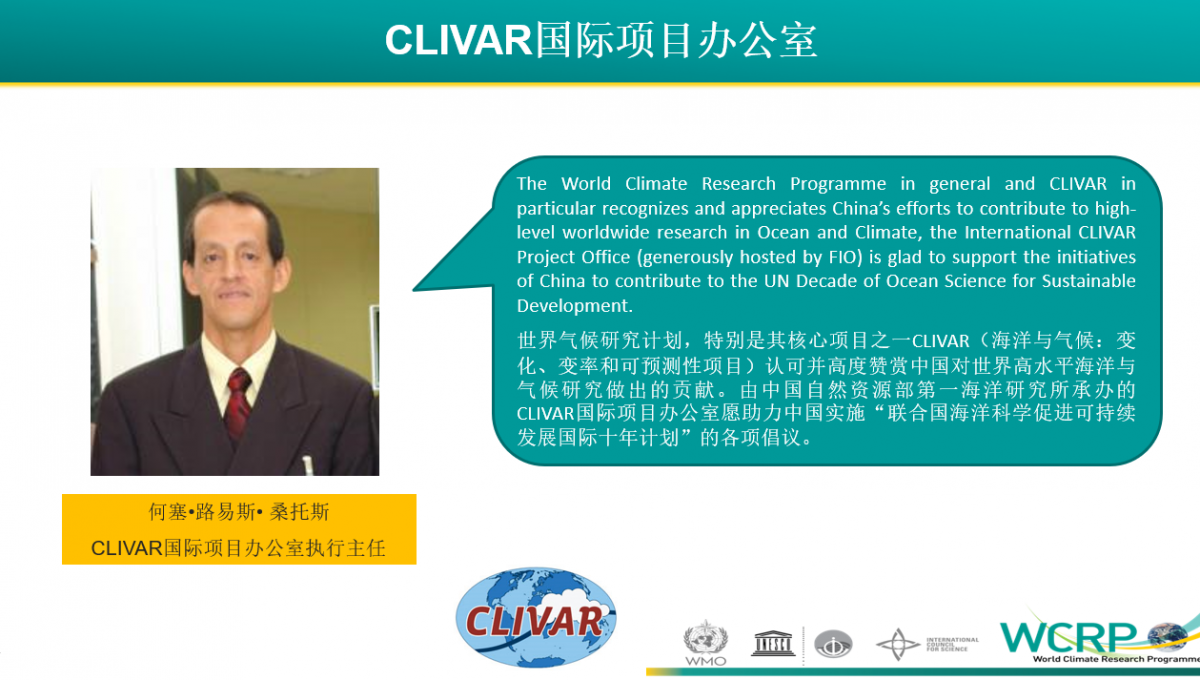ICPO attended the UN Ocean Decade China workshop

On the occasion of celebrating the 14th World Oceans Day, the China Workshop on UN Decade of Ocean Science for Sustainable Development (2021-2030) was held on 8th June 2021 in Qingdao China, organised by the Ministry of Natural Resources (MNR) and the National Natural Science Foundation (NSFC) of China, and hosted by the First Institute of Oceanography (FIO), MNR. Over 150 participants from Government agencies, research institutes and universities, private sectors, and international and domestic organisations attended the workshop. Jose Santos, Executive Director of the ICPO sent a greeting to the event, and Ms. Jing Li and Ms. Qian Zhao attended the workshop on behalf of ICPO.

During the opening ceremony, representatives from MNR, NSFC, local government and Dr. Vlardimir Ryabinin from IOC-UNESCO, gave their warm remarks. The representatives from both central and local government of China showed their strong willingness and support to the UN Ocean Decade initiative, and highlighted that China’s key research programmes and scientific plans are in line with the UN Ocean Decade priorities. The international community recognised the effort and important role of China in advancing ocean sciences and expressed the expectation for continuous support and contribution from China to the UN Ocean Decade.
Seven invited talks were given by representatives from the UN Decade Executive Planning Group (EPG), WESTPAC of IOC-UNESCO, Chinese academicians and leading scientists, NSFC, and private sectors. The talks enlightened ideas for the potential priorities of China to the UN Ocean Decade, which may include: integrating science, management and society to support ocean sustainability (Coastal-SOS); improved understanding of oceanic and atmospheric processes through strengthened observations, model development and predictions in order to provide high-quality public services and products that can benefit the society; microbe-mediated ocean carbon negative emission processes to serve as the ocean action to achieve China’s carbon neutral target; investigation and sustainable use of deep sea resources; funding priorities to promote marine science innovation in supporting global ocean governance; and ocean renewable energy exploration.
During the discussion and wrap-up sessions, participants recognised that the ocean sciences needed for sustainable development cannot be limited to a decade, but should be a long-term effort. They agreed on the importance and necessity of innovative solutions to better link ocean sciences with societal needs; rising public ocean awareness; strengthened collaboration and knowledge sharing; as well as inter-disciplinary and multi-stakeholder participation.
The workshop was carbon neutral, as the 13.74 tons carbon emission estimated for organizing this workshop was offset by the blue carbon credit donated by the SEE Foundation of China, purchasing from a mangrove restoration project in Zhanjiang, Guangdong Province of China.











Add new comment